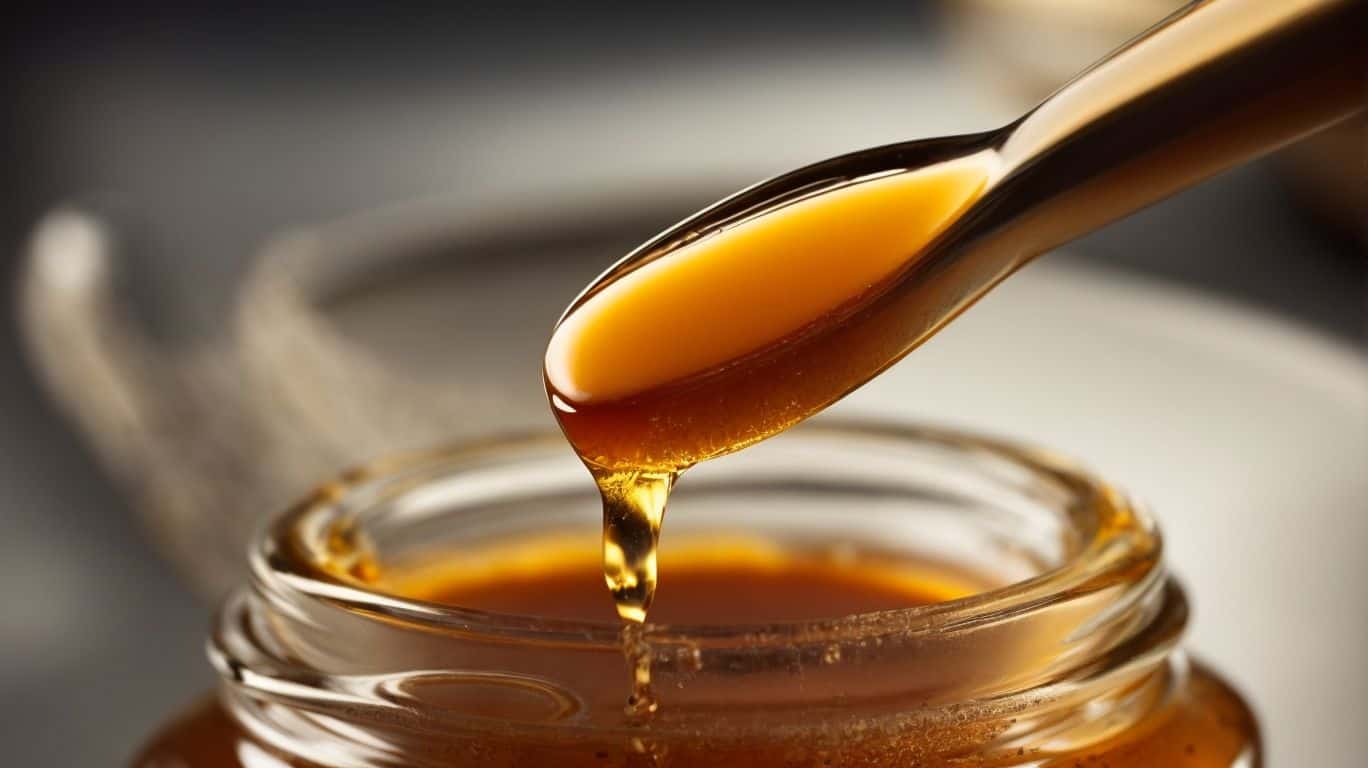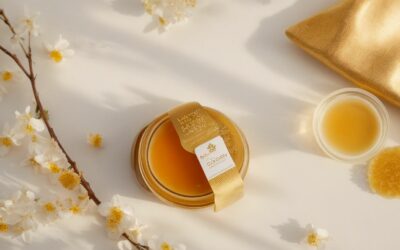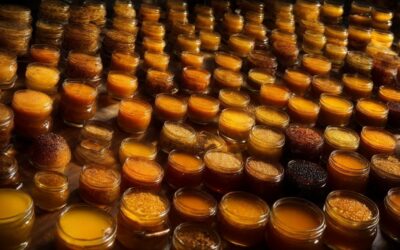Dear reader, are you tired of constantly hearing about the latest health trends and wondering which ones are actually worth your time and money?
If so, then you are not alone. In today’s fast-paced society, it can be overwhelming to decipher what is truly beneficial for our well-being.
This is why it is important to carefully consider the value of popular products like manuka honey. Let’s explore the truth behind this highly praised superfood and determine if it is truly worth it for you.
Is Manuka Honey Worth It?
Manuka honey has been gaining popularity in recent years for its alleged health benefits. However, with a higher price tag than other types of honey, many may wonder if it is truly worth it.
In this section, we will explore the different factors that contribute to the value of manuka honey.
From cost comparison with other types of honey to personal preference and potential health benefits, we will delve into the question: is manuka honey really worth it?
1. Cost Comparison with Other Types of Honey
When comparing the cost of manuka honey to other types of honey, it is important to follow these steps:
- Research different brands and types of honey available in the market.
- Compare the prices per unit, such as per ounce or per jar, of manuka honey and other varieties.
- Take into account the factors that contribute to the higher cost of manuka honey, such as its limited availability and unique properties.
- Consider your budget and personal preferences when deciding if the higher cost of manuka honey is worth it for you.
Pro-tip: Keep in mind that while manuka honey may be more expensive, its potential health benefits and unique flavor profile may make it a worthwhile investment for some individuals.
2. Personal Preference and Taste
When it comes to choosing manuka honey based on personal preference and taste, consider the following steps:
- Do a taste test: Try different brands and variations of manuka honey to determine your preferred flavor profile.
- Consider sweetness levels: Some people prefer a sweeter honey, while others enjoy a more balanced taste.
- Take texture into account: Manuka honey can vary in texture, from smooth and creamy to thick and crystallized. Choose the texture that appeals to you.
- Consider the floral notes: Manuka honey can have unique floral undertones, such as hints of eucalyptus or tea tree. Decide which flavors you enjoy.
Ultimately, the best manuka honey is the one that aligns with your personal taste and preferences. Experiment with different brands and types to find the one that suits you best.
3. Potential Health Benefits
- Antibacterial Properties: Manuka honey has been found to have antimicrobial activity, making it effective against bacteria, including antibiotic-resistant strains.
- Anti-inflammatory Properties: Research suggests that manuka honey may have potential health benefits in reducing inflammation in the body, potentially benefiting conditions such as inflammatory bowel disease.
- Wound Healing Abilities: For centuries, manuka honey has been used to help heal wounds. Its properties can promote tissue regeneration and provide a protective barrier against infection.
- Improves Digestive Health: Incorporating manuka honey into your diet may help soothe and heal the digestive tract, aiding in conditions like acid reflux, gastritis, and stomach ulcers.
Considering these potential health benefits, incorporating manuka honey into your diet or skincare routine may be a worthwhile exploration.
What Makes Manuka Honey Different From Other Honey?
Manuka honey stands out from other types of honey due to its unique properties and production process. Here are some key factors that differentiate it:
- Source: Manuka honey comes from the nectar of the Manuka tree in New Zealand, giving it distinct flavors and aromas.
- Antibacterial properties: Manuka honey contains a compound called methylglyoxal (MGO) that gives it powerful antibacterial properties.
- UMF rating: The Unique Manuka Factor (UMF) rating measures the concentration of MGO in the honey, indicating its potency.
- Medicinal uses: Manuka honey is commonly used for wound healing, skincare, and soothing sore throats.
If you are searching for honey with exceptional antibacterial properties and potential health benefits, manuka honey is definitely worth considering. Just make sure to look for a reputable brand and check the UMF rating to ensure you are getting genuine manuka honey.
What Are The Benefits Of Manuka Honey?
Manuka honey has been gaining popularity in recent years for its purported health benefits. But is it really worth it? In this section, we will delve into the various benefits of manuka honey and how it can positively impact our health.
From its powerful antibacterial and anti-inflammatory properties to its ability to aid in wound healing and improve digestive health, we will uncover the many reasons why manuka honey is worth incorporating into your daily routine.
1. Antibacterial Properties
Manuka honey is well-known for its antibacterial properties, making it a popular choice for a variety of health and skincare applications. To effectively understand and utilize its antibacterial properties, follow these steps:
- When purchasing honey, look for a high UMF rating (Unique Manuka Factor) on the packaging, as this indicates the strength of its antibacterial properties.
- For topical use, apply a small amount of Manuka honey directly to the affected area or mix it with a carrier oil.
- Allow the honey to remain on the skin for at least 20 minutes to fully utilize its antibacterial properties.
- To harness its antibacterial benefits internally, consume a teaspoon of Manuka honey daily.
By following these steps, you can effectively maximize the antibacterial properties of Manuka honey for various health and skincare purposes.
2. Anti-inflammatory Properties
Manuka honey has incredible anti-inflammatory properties that can greatly benefit overall health and well-being. Here are the steps to understanding and utilizing its anti-inflammatory effects:
- Reducing Inflammation: Manuka honey has the ability to reduce inflammation in the body by inhibiting the production of inflammatory molecules.
- Supporting Digestive Health: It can also soothe the digestive system and alleviate symptoms of inflammatory conditions such as gastritis and ulcers.
- Enhancing Wound Healing: Its anti-inflammatory properties aid in the healing of wounds and can reduce swelling and redness.
- Boosting Immunity: The anti-inflammatory effects of manuka honey also support a healthy immune system, reducing the risk of chronic inflammation-related diseases.
A friend of mine struggled with arthritis and experienced significant joint pain. However, after incorporating manuka honey into her daily routine, she noticed a reduction in inflammation and improved mobility.
The anti-inflammatory properties of manuka honey truly made a positive impact on her quality of life.
3. Wound Healing Abilities
Manuka honey has impressive abilities to heal wounds, making it a popular choice for treating various skin conditions and injuries. Here are the steps to harness its healing powers:
- Cleanse the wound gently with a mild antiseptic solution.
- Apply a thin layer of Manuka honey directly on the wound.
- Cover the wound with a sterile dressing to protect it from further infection.
- Change the dressing and reapply the honey daily or as directed by a healthcare professional.
- Monitor the wound for signs of healing, such as reduced redness, swelling, and pain.
- Continue using Manuka honey until the wound is fully healed.
The natural antibacterial and anti-inflammatory properties of Manuka honey can help promote faster wound healing and prevent infection.
Remember to consult a healthcare professional for guidance on the appropriate use of Manuka honey for your specific wound.
4. Improves Digestive Health
Manuka honey has been used for centuries by indigenous Māori people in New Zealand for its medicinal properties, including improving digestive health.
Its unique antibacterial and anti-inflammatory properties have made it a popular natural remedy worldwide. Here are some steps to incorporate it into your routine:
- Consumption: Take a spoonful of Manuka honey daily on an empty stomach.
- Gut health: The honey promotes a healthy balance of gut bacteria, aiding digestion.
- Heartburn relief: Manuka honey can help soothe symptoms of acid reflux and heartburn.
- Immune support: Its antibacterial properties can help fight off harmful bacteria in the digestive system.
Incorporating Manuka honey into your diet can have positive effects on your digestive health, promoting overall well-being.
What Are The Uses Of Manuka Honey?
Manuka honey has been gaining popularity in recent years for its numerous health benefits. But what exactly are the uses of this special type of honey? In this section, we will dive into the versatile uses of manuka honey.
From being a natural sweetener to a powerful skincare ingredient, and even a natural antibiotic, we’ll explore the various ways in which manuka honey can be incorporated into our daily lives for its many benefits.
1. As A Natural Sweetener
Using Manuka honey as a natural sweetener is a great alternative to using refined sugar. Here are some simple steps to incorporate it into your diet:
- Replace sugar: Instead of using sugar, try using Manuka honey in your tea, coffee, or other beverages for a natural and sweet taste.
- Drizzle on food: Add a drizzle of Manuka honey to yogurt, oatmeal, or pancakes to give them a touch of sweetness.
- Baking substitute: You can also use Manuka honey as a substitute for sugar in baking recipes such as cookies, cakes, or muffins.
- Spread on toast: Enjoy Manuka honey on toast or use it as a delicious topping for waffles or French toast.
With its unique flavor and potential health benefits, Manuka honey is a great way to enhance the taste of your favorite foods while providing a natural source of sweetness.
2. In Skincare Products
Incorporating Manuka honey into skincare products has become increasingly popular due to its numerous benefits.
- Anti-aging properties: Manuka honey’s antioxidants help combat free radicals, reducing the signs of aging and promoting a youthful complexion.
- Moisturizing: Its natural humectant properties help retain moisture, leaving the skin hydrated and supple.
- Acne treatment: Manuka honey’s antibacterial properties can help fight acne-causing bacteria, reducing inflammation and preventing breakouts.
- Wound healing: It aids in the healing of wounds, burns, and scars, promoting tissue regeneration and reducing the risk of infection.
When choosing skincare products that contain Manuka honey, it is important to consider the concentration of honey, other ingredients, and the brand’s reputation for quality.
3. For Sore Throat Relief
- To find relief for a sore throat, try drinking warm water with lemon and honey to soothe the throat.
- Another remedy is gargling with warm saltwater to reduce inflammation and kill bacteria.
- Consider using manuka honey as a natural remedy for sore throats.
- You can also add a spoonful of manuka honey to herbal tea for added throat relief.
- It’s important to avoid irritants like smoking and dry air that can worsen a sore throat.
- Resting your voice and avoiding straining your throat muscles can also help.
- Make sure to stay hydrated by drinking plenty of fluids.
- For temporary relief, you can also use lozenges or throat sprays.
4. As A Natural Antibiotic
Manuka honey is well-known for its natural antibiotic properties, making it a popular choice for various health-related uses.
- Sore Throat Relief: Manuka honey’s antibacterial properties can help soothe a sore throat when consumed or used in throat lozenges.
- Wound Healing: Applying manuka honey topically on wounds can promote healing and prevent infection.
- Antibiotic Alternative: Some studies suggest that manuka honey may be an effective natural alternative to antibiotics in certain cases, as it has shown to be effective against certain bacteria.
- Internal Health: Consuming manuka honey may also support digestive health and boost the immune system.
Overall, manuka honey’s natural antibiotic properties make it a beneficial addition to your health routine, serving as a natural antibiotic.
What Are The Factors That Affect The Quality Of Manuka Honey?
When it comes to manuka honey, not all jars are created equal. There are several factors that can affect the quality and potency of this highly sought-after honey.
In this section, we will discuss the key factors that determine the quality of manuka honey, including the UMF (Unique Manuka Factor) rating, MGO (Methylglyoxal) content, and the location and source of the honey.
By understanding these factors, you can make an informed decision about whether manuka honey is worth it for you.
1. UMF Rating
The UMF (Unique Manuka Factor) rating is an essential consideration when purchasing Manuka honey. To understand the UMF rating, follow these steps:
- Look for the UMF logo on the honey packaging.
- Check the UMF number, which ranges from 5+ to 20+.
- Higher UMF numbers indicate higher levels of unique compounds.
- The UMF rating guarantees the authenticity and quality of Manuka honey.
- Verify the UMF rating with the official UMF Honey Association website.
The UMF rating system was developed in New Zealand to protect consumers from counterfeit or low-quality Manuka honey. It ensures that the honey has undergone thorough testing to confirm its purity and potency.
This rating system has become a trusted standard in the Manuka honey industry.
2. MGO Content
Manuka honey’s MGO (methylglyoxal) content is a crucial factor in determining its quality and potential health benefits. To accurately evaluate MGO content, here are some important steps to consider:
- Check the MGO rating: Look for a higher MGO rating, as it indicates a higher concentration of methylglyoxal, which is responsible for the unique properties of manuka honey.
- Understand the grading system: Manuka honey is graded based on its MGO content, with higher grades representing higher levels of methylglyoxal.
- Consider your specific needs: Different health conditions require varying levels of MGO. It is recommended to consult with a healthcare professional to determine the appropriate MGO content for your individual needs.
- Verify authenticity: Ensure that the honey is genuine and contains the stated MGO content by checking for reputable certifications, such as the Unique Manuka Factor (UMF) certification.
- Compare prices: Evaluate the cost of manuka honey with different MGO contents to find a balance between quality and affordability.
3. Location and Source of the Honey
The location and source of the honey play a significant role in determining the quality and properties of Manuka honey.
- Location: Manuka honey is primarily sourced from New Zealand, where the Manuka plant grows abundantly in the wild.
- Manuka plant: Bees collect nectar from the flowers of the Manuka plant, which contributes to the unique properties of Manuka honey.
- Climate and environment: New Zealand’s pristine environment and unique weather conditions create an ideal habitat for Manuka bees and ensure the purity of the honey.
- UMF certification: Look for Manuka honey with a UMF (Unique Manuka Factor) certification, as it guarantees that the honey comes from a trusted source and meets specific quality standards.
- Traceability: Choose brands that provide traceability, allowing you to track the honey’s origin and verify its authenticity.
Frequently Asked Questions
Is manuka honey worth it?
Absolutely! Manuka honey offers numerous health benefits and is recognized as a powerful superfood.
Why is Manuka honey worth it?
Manuka honey contains unique compounds that are not found in other types of honey, making it a valuable addition to your diet.
What health benefits does manuka honey offer?
Manuka honey has been shown to have antibacterial, anti-inflammatory, and antioxidant properties. It can aid in wound healing, improve digestion, boost immunity, and more.
How is manuka honey different from regular honey?
Manuka honey is different from regular honey due to its high concentration of methylglyoxal (MGO), a compound with powerful antibacterial properties. It also has a thicker consistency and a more intense flavor.
Is manuka honey worth the cost?
While manuka honey may be more expensive than regular honey, its unique properties and health benefits make it well worth the cost.
How do I choose the right manuka honey?
When purchasing manuka honey, look for a UMF (Unique Manuka Factor) rating of 10 or higher, which indicates the level of MGO in the honey. The higher the rating, the more potent the honey will be. It’s also important to ensure that the honey is authentic and from a reputable source.
I’m a Manuka honey enthusiast and creator of Manuka Honey Organic, a blog where I share my journey with authentic Manuka honey from New Zealand. I want everyone to learn about the healing powers of Manuka honey.





